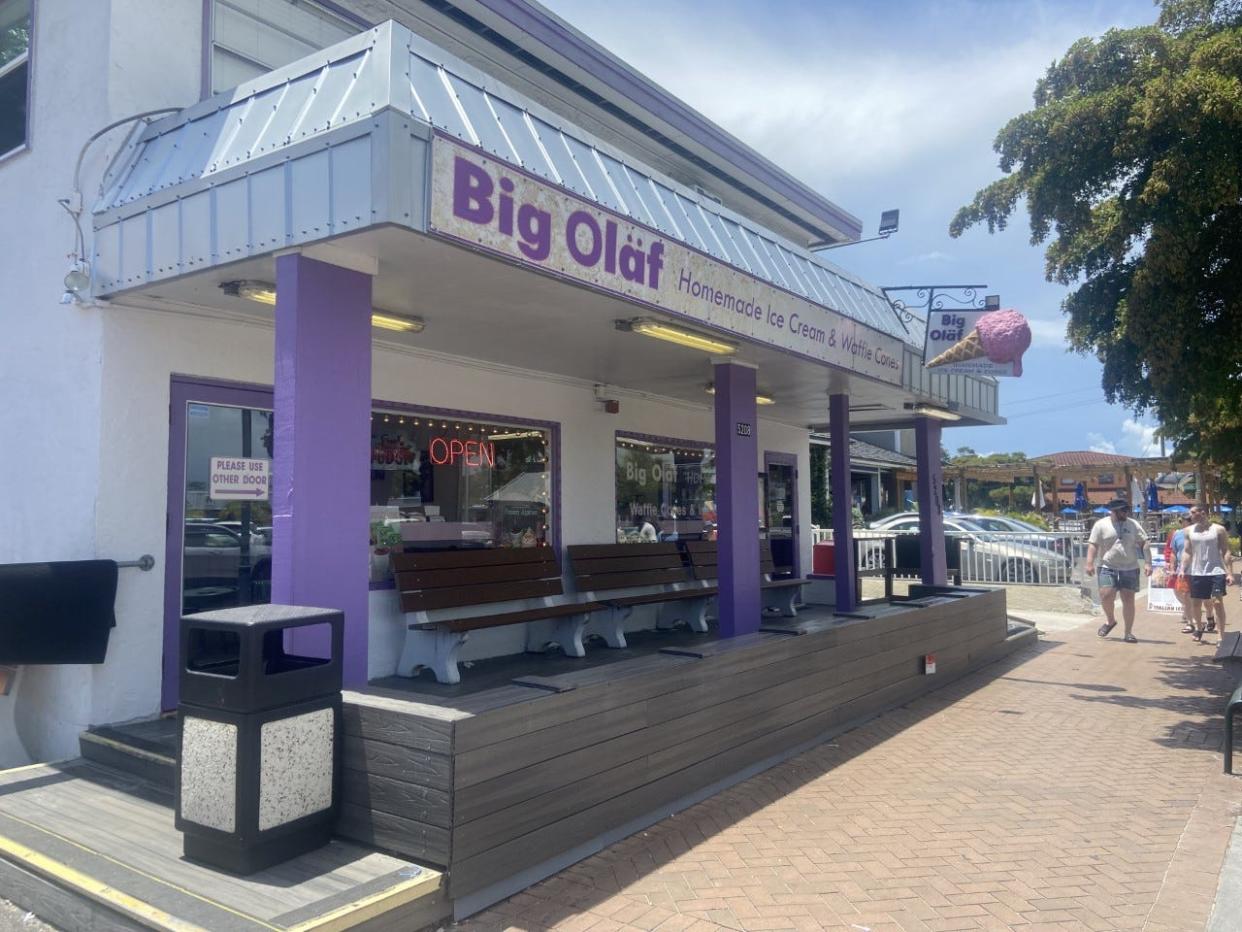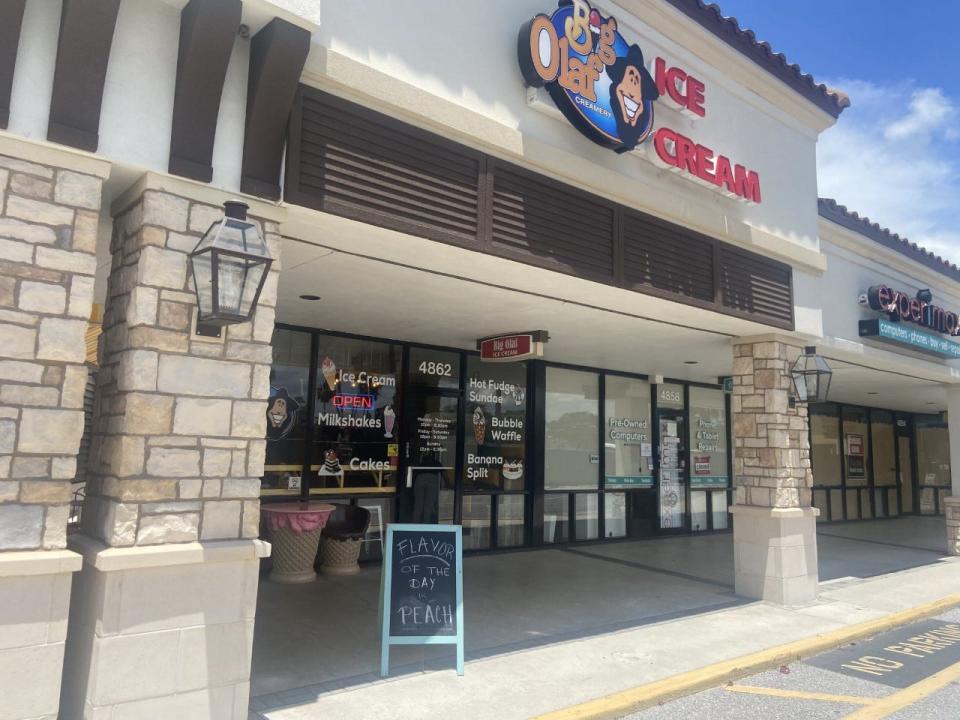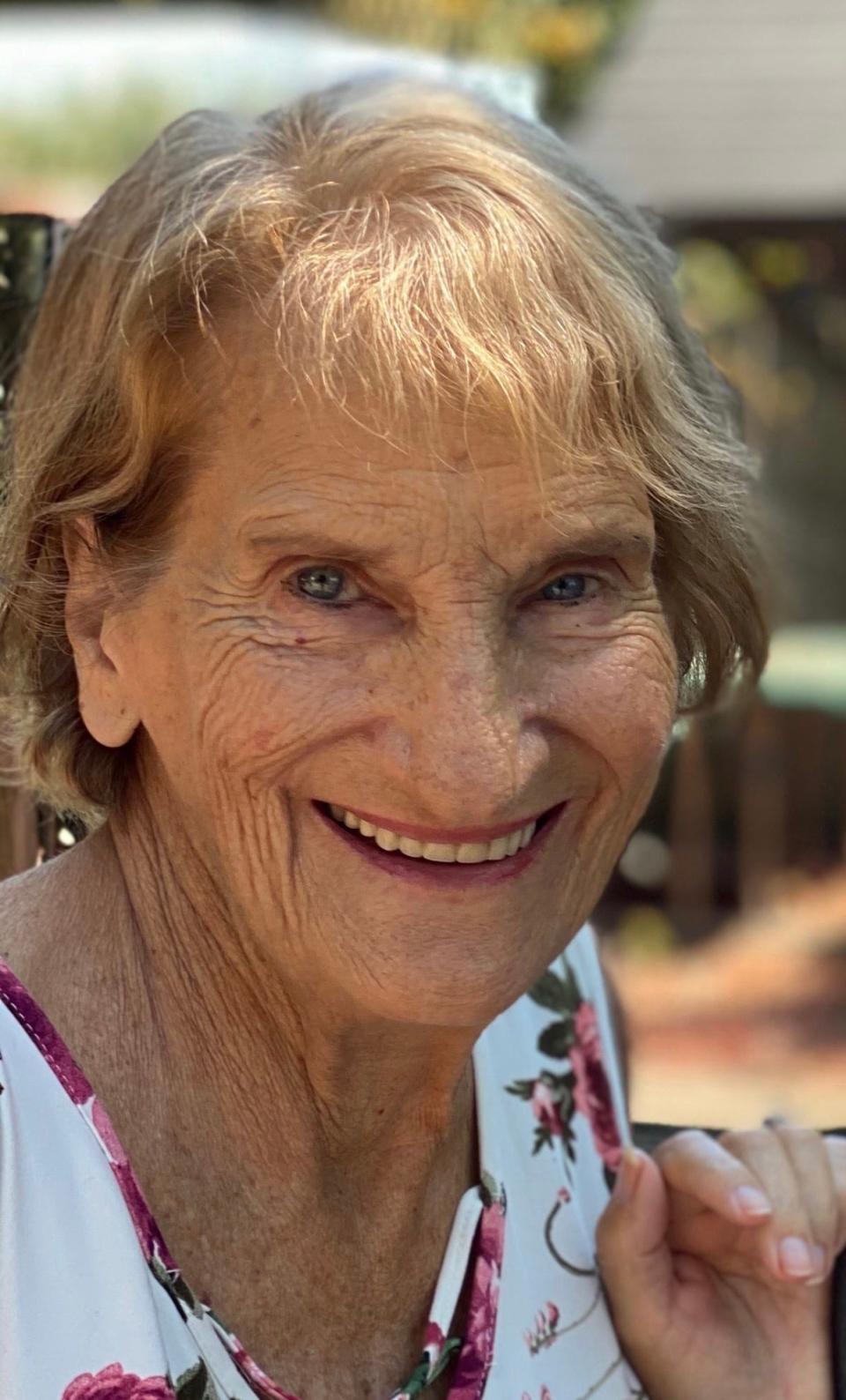Sarasota's Big Olaf Creamery sued over death of woman in ongoing listeria outbreak

Big Olaf Creamery is being sued over the death of a woman whose estate alleges she contracted listeria from its ice cream.
According to a lawsuit filed in federal court on Tuesday, the estate of Illinois resident Mary Billman is suing the Sarasota company over her death, which the plaintiffs allege happened because she ate contaminated ice cream.
According to the lawsuit, Billman allegedly ate contaminated ice cream at Big Olaf's Pinecraft location at 3350 Bahia Vista St. in Sarasota on Jan. 18 on a visit to the area. Her daughter lives in Hollywood and Billman herself used to live in Sarasota.
About a week later on Jan. 25, Billman had developed gastrointestinal symptoms and a low-grade fever. On Jan. 27, she woke up with a fever of 103 degrees and was taken to Memorial Regional Hospital in Hollywood, where she began treatment for a septic illness.
Over the next two days, her organs started to shut down, leaving her unconscious before her family was able to come visit her. She never regained consciousness, and died Jan. 29, leaving behind her husband Richard, three daughters, eight grandchildren and four great-grandchildren, the lawsuit states.
Previously reported: Big Olaf Creamery recommends sellers not offer its ice cream amid listeria outbreak, CDC says
Also: Big Olaf Creamery brand ice cream tied to deadly outbreak of Listeria infections, CDC says
The lawsuit comes three days after the U.S. Centers for Disease Control and Prevention issued an advisory warning consumers not to sell or eat Big Olaf ice cream and linking it to a listeria outbreak.
The company's ice cream is produced at a central location on Cattlemen Road in Sarasota and then distributed to each independently-owned Big Olaf store and to other retail partners.
On Sunday, Rosie Peachey of Big Olaf Creamery said that despite the CDC's advisory, the ice cream's link to the outbreak was "only speculation" and that the brand was not confirmed to be linked to the cases.
"The original report we got from the Florida Department of Health on Friday, July 1 was that there are 23 cases reported, the first one reported was January 2022, six out of the 23 patients mentioned having consumed Big Olaf ice cream, but nothing has been proven," Peachey wrote. "We have been cooperating with the Florida Department of Health, (the Florida Department of Agriculture and Consumer Services) and the (U.S. Food and Drug Administration) as soon as we were informed about the situation."

But Bill Marler, the plaintiff's attorney in the lawsuit against Big Olaf Creamery, said the CDC doesn't make reports based on speculation.
Marler, who has represented clients in foodborne illness cases for the past 30 years, said confirmed cases of listeria are reported to public health departments. Then they isolate of the culture where the listeria was found goes to a state lab, which does genetic fingerprinting and whole genome sequencing. A digital picture then gets uploaded to a CDC database called PulseNet where matches can be found.
"The CDC looks at that digital fingerprint and compares it to others to look for matches, so when this outbreak began back in January of 2021, there must have been no matches," Marler said. "Over the course of time, other people got sick, and the same thing happened. At some point to the CDC, by communicating with state health authorities that were also investigating these cases, it must have become pretty clear that all of these cases were either in Florida or had some connection to Florida."

At that point, health officials interview survivors to try to find out where they ate, Marler said. While that can be tough in listeria cases, because symptoms can take between three and 70 days to appear in patients, it's easier to link cases to a single source by looking at their genetic fingerprint.
"Whole genome sequence gives you beyond a reasonable doubt - this is the kind of technology used in criminal cases, DNA sampling, that kind of stuff," he said. "It's been a game changer in the food space because you know that if people have the same genetic fingerprint, you know it came from the same place."
Over the July 4 holiday weekend weekend, several Big Olaf locations remained open even after the issuance of the advisory.
On Sunday, the owner of Big Olaf's St. Armands Circle location told a reporter at his shop that nothing had been proven yet. The store said Monday morning on Facebook that it would close until the situation was resolved, but in a follow-up post on Tuesday, the shop said it feels targeted, continued to say nothing has been proven and that it has passed most of its inspections with flying colors.
"We are also very confused because the the Florida Department of Health has still not even come out to investigate, we still have not heard from them, we have been waiting all weekend," the shop wrote.
The company's Siesta Key location is also closed until further notice, according to Facebook. A statement from management at Siesta Key issued Sunday evening said that the store had "voluntarily and temporarily closed" in order to "take a proactive stance regarding the potential issue with one of our distributors."
Big Olaf's Pinecraft location, the one where Billman allegedly ate on Jan. 18, was closed over the weekend, but for unrelated reasons. A sign in the window on Sunday said the store would be closed until July 11 because of a death in the family.
Eszter Bazso, the owner of Big Olaf's location in The Landings plaza in Sarasota, did not provide any new information about the situation, communications with health agencies or whether or not the store is open.
However, Big Olaf Dream, the parlor's 3973 Cattlemen Road location also owned by Bazso, said on Facebook that it was open on the Fourth of July from 2 p.m. to 8 p.m. and normal hours on Tuesday.
Bazso expressed frustration at the continued news coverage of the situation on Facebook and over email. On Monday, she told a customer on Facebook that staff worked "all night" to make sure everything tested negative, but did not provide specifics. When reached by phone Tuesday, Bazso said she could not provide any more information under advice of counsel.
"It seems there is no regard for anyone or anything except sensationalism when it comes to the matter in which this 'news' has been propagated for the last few days," Bazso wrote via email. "If the 'news' wants to protect the public from something, that is one thing, but to constantly report on something that is a non-event in the community is a different matter."
It's unclear if any shutdowns or cleanings occurred at Big Olaf's facilities after the company was informed of the listeria situation. Both the CDC and the Florida Department of Health did not return requests for comment by press time. But if Big Olaf sold ice cream knowing there was an outbreak and without shutting down or disposing of any contaminated product, then Marler said the company could be subjecting itself to criminal liabilities.
"If they've gone in and cleaned all the machinery since they were isolated as the likely source of this, and all the ice cream they're producing has been produced after that, then I can see why they might stay open and continue to produce. But I doubt that that's the case," he said. "So something is going on that's not quite correct."
On Saturday, the CDC issued a food safety alert, linking Big Olaf ice cream to a listeria outbreak, accounting for 23 illnesses, 22 hospitalizations and one death in people from ten states. Twelve of the cases of people getting sick were in Florida, and among 10 people with information who did not live in Florida, eight traveled to the Sunshine State in the month before getting sick.
The governmental entity advised consumers to throw away any remaining Big Olaf ice cream product and to clean any areas, containers and serving utensils that may have touched it. Businesses, the CDC said on Saturday, should not serve or sell any Big Olaf ice cream products.
It also said that the company was voluntarily contacting retail locations to recommend against selling the product until further notice, although locations remained open after the advisory.
Listeria, according to the CDC, can cause severe illness known as invasive listeriosis when bacteria spread beyond the gut to other parts of the body. Adults aged 65 and older, pregnant people and people with weakened immune systems are at higher risk.
Symptoms of severe illness usually begin within two weeks of consuming contaminated food, but they can also start as early as the same day or up to 70 days after, according to the CDC.
Support local journalism with a digital subscription to the Herald Tribune.
This article originally appeared on Sarasota Herald-Tribune: Listeria outbreak in Florida: Sarasota creamery sued by woman's estate

